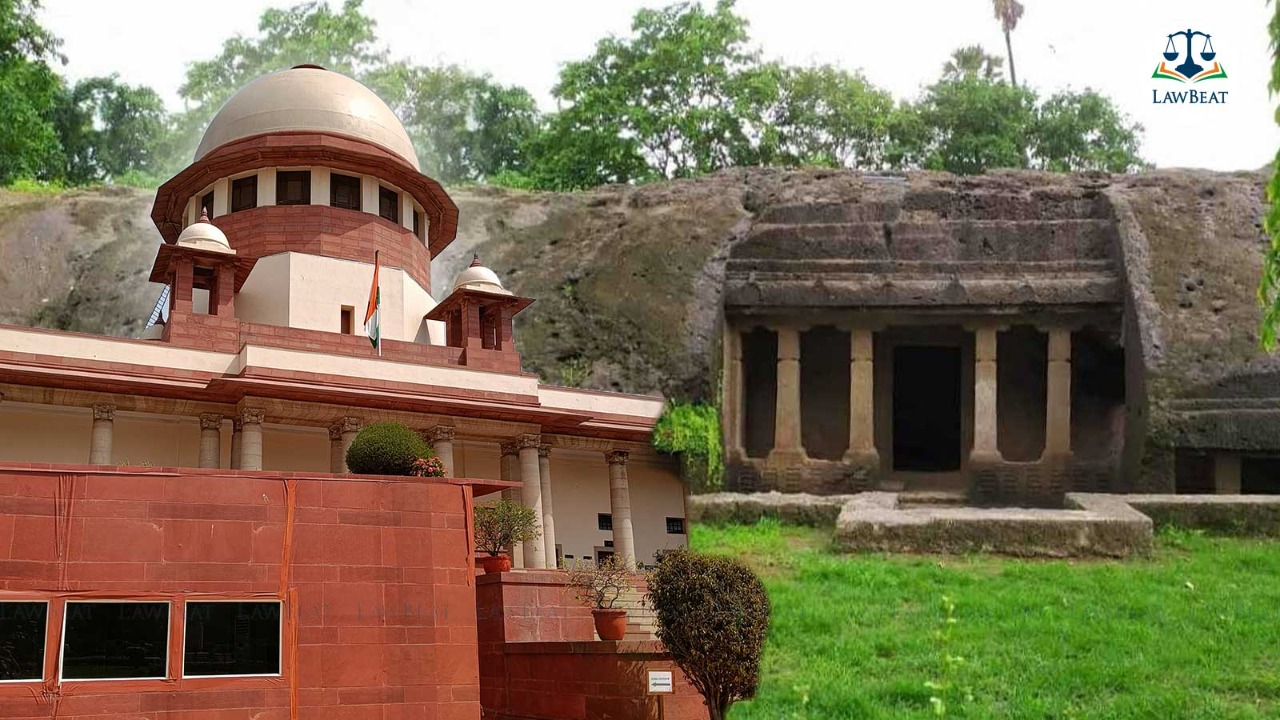'Needs Of The Many Must Outweigh That Of The Few'-Supreme Court Gives Nod To Direct Linkage To Mahakali Caves

While the Bench also opined that, "We emphasise once again before parting that the rights of the individual must only be watered down when the necessary circumstances demanding such a drastic measure exist".
A Bench of Justice Surya Kant and Justice Abhay S. Oka while dismissing an appeal being devoid of merits, was of the opinion that the respondent, validly exercised its powers under the Mumbai Municipal Corporation Act (MMC Act) to direct the acquisition of the Appellants’ land. While also stated that the argument that the Maharashtra Regional Town Planning Act, 1966 (MRTP Act) maintains supremacy over the MMC Act is not the correct position of law, and the two statutes exist side by side with some degree of overlap.
The Bench was of the opinion that,
"...we must not lose sight of the fact that in several situations, the needs of the many must outweigh that of the few. We say so not with any fervour nor as a mantra, but as a solemn acknowledgment of the realities of modern life".
The dispute arose between the parties when a road was to be constructed through appellant's property by the Municipal Corporation of Mumbai. In the pertinent matter the property in question was acquired by the appellants in 1959, and a building known as the “INGA Building” was constructed on it in 1965. In 1976 the plan was floated in Development Plan (DP), while a road was a realigned in 1884, and in 1992 appellants raised objections. Notably, during this period several complaints in order to connect the Mahakali Caves with the Central Industrial District were received from the public. After a series of objection and notices, respondents sanctioned a notice of acquisition of Appellants’ land sanctioned for building an 18.30 metres new road line, in the public interest. Eventually, the Division Bench the High Court affirmed the need to acquire Appellants’ land for construction of the link road in public interest.
The Bench considered the most important proposition and opined that, "The need stems from the traffic congestion caused on the route from the Mahakali Caves to the Central MIDC. The lack of a direct linkage requires detours to be taken that significantly increase commuting time and cause inconvenience to the general public".
The Court in its 61 page judgment, dealt with three broad contentions:
(1) Interplay between the MRTP Act and the MMC Act
The Bench while agreeing with the Counsel for the respondents, it was of the opinion that the MRTP Act and the MMC Act exist in separate spheres without any preconceived hierarchy.
(2) Compliance with the procedure under the MMC Act
While concluding in favour of the respondents, the Court stated 'that the objections by the Appellants on the grounds of nonadherence to procedural requirements under Section 91 of the MMC Act are without merit. There has been substantial compliance with the provision and the objective underlying it has been honoured".
(3) Public Interest v. Private Interest
The Court referred to a catena of judgments while giving out the judgment. Stressing on the concept of Eminent Domain, the Court cited K.T. Plantation Pvt. Ltd. & Ors. v. State of Karnataka, (2011) 9 SCC 1, where it was opined that, "the origins of “Eminent Domain” Hugo Grotius is credited with the invention of the term "eminent domain" (jus or dominium eminens) which implies that public rights always overlap with private rights to property, and in the case of public utility, public rights take precedence. Grotius sets two conditions on the exercise of the power of eminent domain: the first requisite is public advantage and then compensation from the public funds be made, if possible, to the one who has lost his right".
And further added that, "we deem the present case to be an appropriate instance where public interest must have paramountcy over private interest. We emphasise once again before parting that the rights of the individual must only be watered down when the necessary circumstances demanding such a drastic measure exist".
on the grounds of nonadherence to procedural requirements under Section 91of the MMC Act are without merit.
CASE TITLE: Abraham Patani of Mumbai vs. State of Maharashtra
